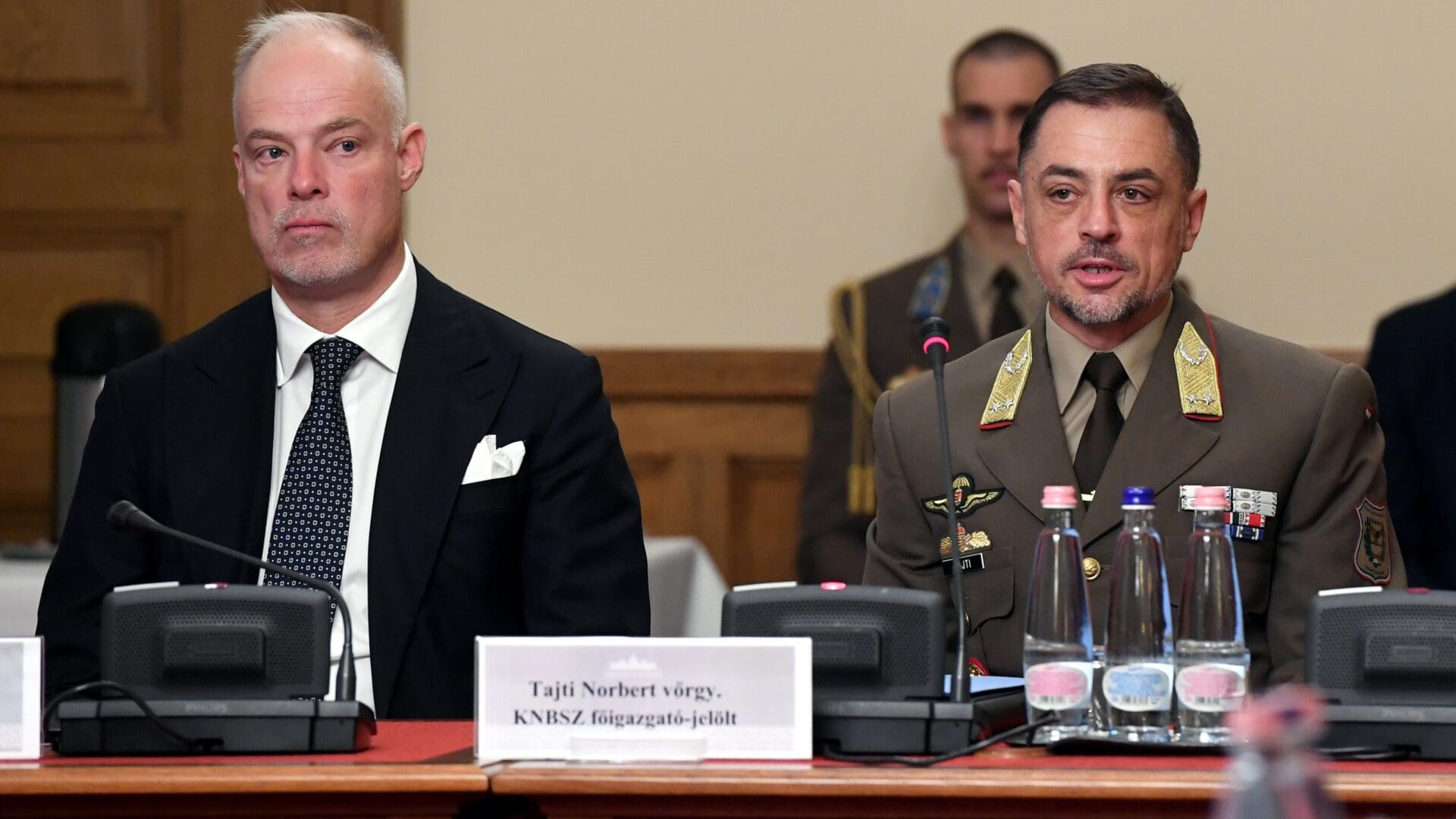At the hearing of the Hungarian parliament National Defence Committee, Defence Minister Kristóf Szalay- Bobrovniczky described Norbert Tajti, the nominee for the position of Director General of the Military National Security Service (KNBSZ)as ‘the embodiment of a young, dynamic leadership culture’ essential in the Hungarian military.
During the nominee’s committee hearing, the minister stated that the leadership of the armed forces has been significantly and fundamentally renewed over the past one and a half to two years; practically the entire leadership has changed, and all unit commanders are excellent young officers.
According to the minister, the significance and importance of KNBSZ are demonstrated by the nearly weekly emergence of international military conflicts of unpredictable significance. KNBSZ is our ‘special national treasure,’ which, due to its nature, is less visible to the public, but its significance and the quality of its service are extremely important.
Kristóf Szalay-Bobrovniczky underscored that KNBSZ is Hungary’s ‘immune system,’ providing defence against any unauthorized intrusion or espionage attempts, and also serving as the country’s eyes and ears in the world. He added that the Hungarian Defence Forces work closely with KNBSZ, and a significant portion of its personnel had served elsewhere in the military. There is a shift in style, pace, and focus within the armed forces, and all the organizations supporting the military must also operate accordingly, Szalay-Bobrovniczky said, noting that appointing a secretary of state to lead KNBSZ last year was a significant change from the previous management methods. He continued by saying that this transformation was so significant that after leading the organization for five and a half years, they concluded with Lieutenant General János Béres, the exiting Director General, that it would be best to appoint a new leader for the new tasks.
Regarding Lieutenant General János Béres, who is stepping down from the Director General position, the minister said that he is one of the most serious, highly respected, and knowledgeable experts in Hungarian military intelligence, an excellent person and a model patriot. Béres will continue his service in a different capacity, outside the framework of the Defence Forces. The minister has nominated Lieutenant General Norbert Tajti as his successor, an outstanding military officer who has been an active leader in special operations. He embodies, not only because of his age but also in every sense, the young, dynamic leadership culture required in the entire Hungarian defence sector, including the leadership of the armed forces and KNBSZ, Szalay-Bobrovniczky suggested.
Lieutenant General Tajti has participated in numerous international, primarily US, training programmes and has been involved in various significant military missions, with his activities in Afghanistan being particularly noteworthy. The minister stressed that the nominee’s knowledge, dynamism, patriotism, and personal commitment make him suitable for this task in every sense.
In his introduction, Lieutenant General Norbert Tajti mentioned that he graduated from as a mechanized infantry from the Kossuth Lajos Military College in Szentendre. He served in the Budapest Regiment for over ten years, during which time he attended company commanders’ and staff officer courses in Switzerland and Austria. He also served with the UN peacekeeping forces in Cyprus.
In 2007, he transferred to the special operations forces, and between 2008 and 2018, he served in various positions at the General Staff of the Hungarian Defence Forces, with his last position being the head of special operations. He acquired combat experience during military deployments in Afghanistan in 2006, 2011, and 2013, with the latter two missions focusing on special operations. Tajti also noted that he studied in the United States twice, in 2009–2010 and 2018–2019. The Lieutenant General also highlighted his significant experience gained from participating in the introduction of the Hungarian Defence Forces’ border protection and border security operation in 2015, especially in its initial weeks.
In the past three and a half years, Lt General Tajti has served as a direct collaborator of the Prime Minister at the Prime Minister’s Cabinet Office. At the beginning of the coronavirus pandemic, military commanders were assigned to several critical infrastructures, including hospitals. As part of that scheme, two military officers were assigned to the Cabinet Office.
The committee supported the nominee with six votes in favour and two abstentions.
Related articles:








